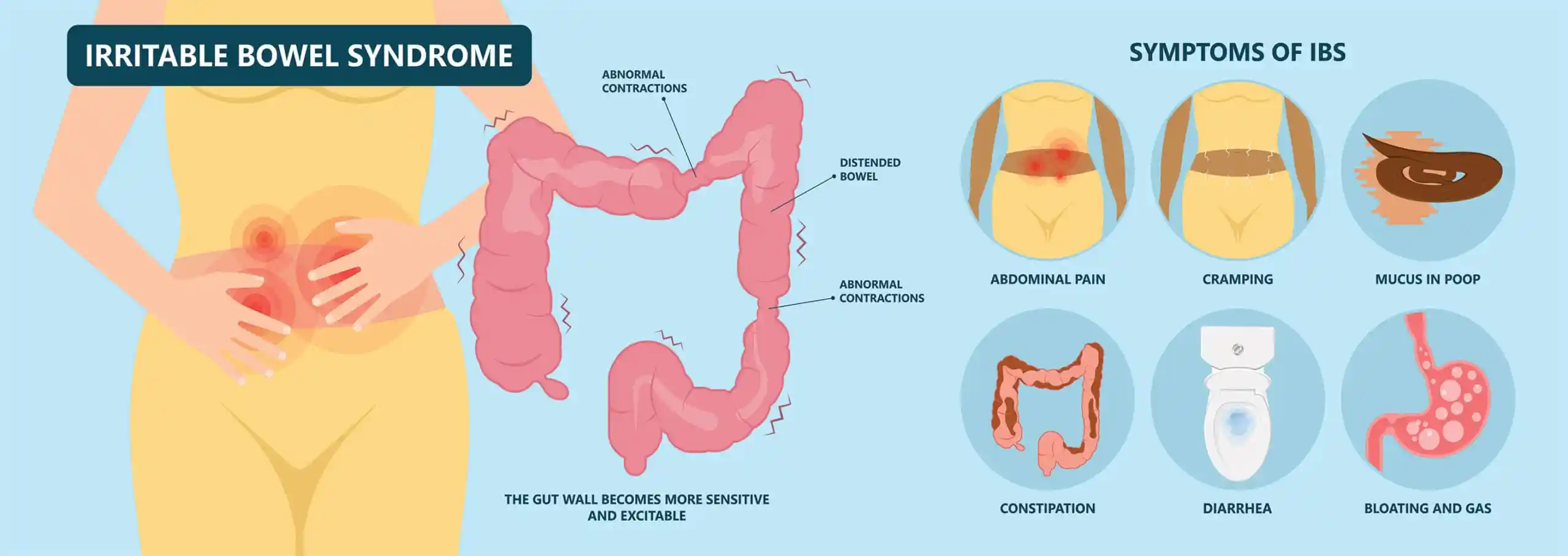Dr. Abhimanyu Rana

Irritable bowel syndrome (IBS) with pain
Irritable Bowel Syndrome (IBS) is a common gastrointestinal disorder that affects the large intestine, causing a range of uncomfortable and disruptive symptoms. Among these symptoms, pain is a prominent and distressing feature that can significantly impact daily life. Exploring the intricate nature of IBS with pain, its underlying mechanisms, diagnostic considerations, management strategies, and the importance of lifestyle modifications provides insight into managing this complex condition.
Understanding IBS with Pain:
IBS is a chronic disorder characterized by a collection of symptoms, including abdominal pain or discomfort, bloating, and changes in bowel habits (diarrhea, constipation, or both). Pain is a hallmark of IBS and is often described as:
Cramping: Sharp, intermittent pain that comes and goes.
Colicky: Waves of pain that fluctuate in intensity.
Lower Abdominal: Pain is typically felt in the lower abdomen, often relieved after a bowel movement.
Lifestyle Modifications and Patient Empowerment:
Individuals with IBS can play an active role in managing their symptoms through lifestyle modifications and self-care practices:
Meal Planning: Keeping a food diary and identifying trigger foods.
Hydration: Drinking adequate water to promote regular bowel movements.
Regular Meals: Eating consistent meals and avoiding large, heavy meals.
Mindful Eating: Eating slowly and mindfully to aid digestion.
Physical Activity: Incorporating regular exercise into daily routines.
Stress Reduction: Engaging in stress-relieving activities and practices.
The Journey to Relief:
IBS with pain presents unique challenges, but with a comprehensive approach that combines dietary adjustments, medication, stress management, and lifestyle modifications, individuals can navigate the complexities of this condition and strive for improved quality of life. By collaborating with healthcare professionals, adopting patient-centered strategies, and embracing self-empowerment, individuals can embark on a journey toward relief and well-being in the tumultuous terrain of gastrointestinal discomfort.

